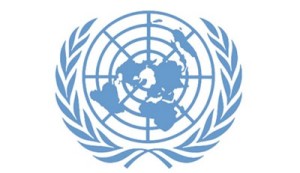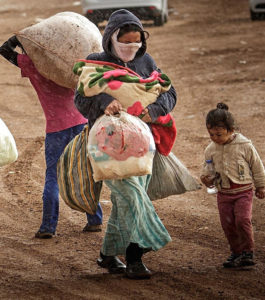 There is SO much misunderstanding about what the term United Nations Peacekeepers means, and what members of such a deployment can do – and cannot do. And I admit that, before 2001, I didn’t really know what it meant either.
There is SO much misunderstanding about what the term United Nations Peacekeepers means, and what members of such a deployment can do – and cannot do. And I admit that, before 2001, I didn’t really know what it meant either.
Here are four facts about United Nations Peacekeepers that I wish everyone understood, and that I wish journalists did a much better job of explaining whenever they write about UN Peacekeeping operations:
(1) There is no standing military of UN Peacekeepers. When you hear the term UN Peacekeepers, it means men and women who are members of their respective country’s armed forces and are still entirely under the command of their own country’s military leadership. When you hear the term “a group of UN Peacekeepers”, it means a group of, say, army infantry from Nigeria, or the or India, or Belgium, or any number of other countries that may be participating. There is NO United Nations “army”. A person can’t sign up somewhere to be a UN peacekeeper – you would have to join your own country’s military or police and hope that, somehow, your country will choose to donate your unit to a peacekeeping operation.
(2) 125 countries contribute military troops, police, and civilian personnel to UN Peacekeeping operations, including 126 peacekeepers from the USA. Pakistan, India and Bangladesh are among the largest individual contributors with around 8,000 units each. African nations contributed nearly half the total, almost 44,000 units.
(3) UN peacekeeping operations are deployed on the basis of mandates from the United Nations Security Council – and that mandate must be unanimous. If one of the permanent members of the Security Council – China, Russia, the USA, France or the UK – says “no” to a deployment in a country, even if they host country wants such, then there will be no UN peacekeeping operations in that country.
(4) UN peacekeeping operations cannot happen without permission of the country where they will be deployed. That host country must invite them, approve of their being there and approve the definition of what they do. Peacekeeping missions need the consent of the host governments to operate, cannot do anything beyond what their host country has agreed they can do, and can be ordered to leave by that host country at any moment. That means that, very often, those in command of UN peacekeeping forces will refuse to undertake a life-saving action protecting foreign refugees, an ethnic minority or even local women, because such actions might upset the host country. For instance, in 2016, local and foreign aid workers were raped, beaten and robbed in South Sudan, by South Sudanese government troops, just minutes away from the main UN compound in Juba, the capital. Despite desperate phone and text messages from the victims to those in command at that compound, the 2,000 or so troops never stirred. Most articles, including this one from CNN, never identify what country those peacekeepers represent, giving the false impression that these troops are under the command of the UN. The troops that ignored the pleas from aid workers in Sudan were, in fact, from China, India, Ethiopia and Nepal. Belgian troops, acting as UN Peacekeepers, stood by Tutsi people were slaughtered in Rwanda in 1994, and a year later, Dutch troops failed to stop the massacre of 8,000 Muslim men by Serbs in Srebrenica, a supposedly UN “safe area.” It is up to those individual countries to discipline their troops stationed in these countries for not fulfilling their duties, and only IF it can be proven they did not do what they were explicitly mandated to do – all the UN can do is strongly urge them to do so.
This blog also cites statistics from the official UN Peacekeeping website, from the UN Foundation blog 7 key facts UN peacekeeping, and from this article in the Guardian.
Should the UN Peacekeeping system be changed? That’s someone else’s blog to write… I just want who the peacekeepers are and what they can and cannot do to be better clarified, by journalists in particular.
Also see:
United Nations personnel system needs radical overhaul
International aid workers having sex with people in countries in crisis
Frank description of what it’s like to work in communications in the UN
UN Agencies: Defend your “internships”
UN Volunteers, IFRC, ILO & others make HUGE misstep
My work in international development (including the United Nations)

